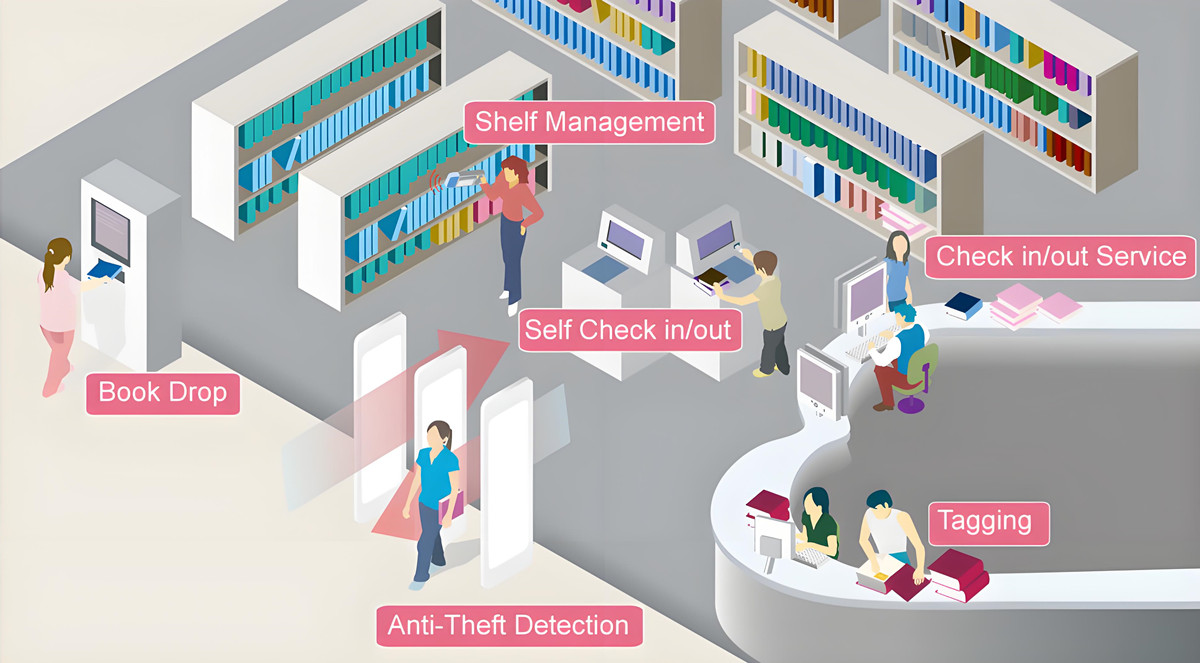How RFID is Revolutionizing Library Book Management Systems?
Jul 23, 2025
How RFID Technology is Transforming Library Book Management?
RFID (Radio Frequency Identification) technology is revolutionizing library operations by enhancing efficiency, security, and user experience. Here’s how RFID is transforming library book management:
1. Faster and More Efficient Check-In/Check-Out
Self-Service Kiosks: Patrons can borrow and return books independently by scanning multiple items simultaneously, reducing queues.
Bulk Processing: Unlike barcodes, RFID allows scanning multiple books at once (e.g., stacked returns), saving staff time.
Automated Returns: RFID-enabled book drops instantly update the system when books are returned.
2. Improved Inventory Management
Rapid Shelf Audits: Librarians can perform inventory checks in minutes using handheld RFID readers instead of manual scanning.
Real-Time Tracking: RFID tags help locate misplaced or misshelved books quickly.
Automated Sorting Systems: Some libraries use RFID conveyor belts to sort returned books by genre or section.
3. Enhanced Anti-Theft and Security
RFID Security Gates: Detect unauthorized book removals without proper checkout.
Tamper-Proof Tags: RFID tags are embedded in books, making them harder to remove compared to traditional magnetic strips.
4. Better User Experience
Faster Searches: Patrons can use RFID-powered search stations to locate books precisely.
Mobile Integration: Some libraries offer apps that guide users to a book’s exact shelf location via RFID tracking.
5. Reduced Labor Costs & Human Errors
Automation minimizes manual data entry and repetitive tasks, allowing staff to focus on customer service.
Fewer scanning errors compared to barcode systems.
6. Long-Term Cost Savings
Though initial RFID implementation is costly, it reduces labor, theft, and lost-book expenses over time.
Challenges & Considerations
Initial Setup Cost: RFID tags and infrastructure require significant investment.
Privacy Concerns: Some worry about tracking patron behavior, though most systems anonymize data.
Tag Reliability: Metal or liquid near books can interfere with RFID signals.
Future Trends
Smart Shelves: RFID-enabled shelves that auto-update inventory in real time.
AI + RFID Integration: Predictive analytics for book demand and shelf optimization.
Conclusion
RFID technology is making libraries smarter, faster, and more user-friendly. By automating tedious tasks, improving security, and enhancing the patron experience, RFID is becoming a must-have in modern library management systems.
Would you like details on specific RFID library solutions or case studies?
Read More
